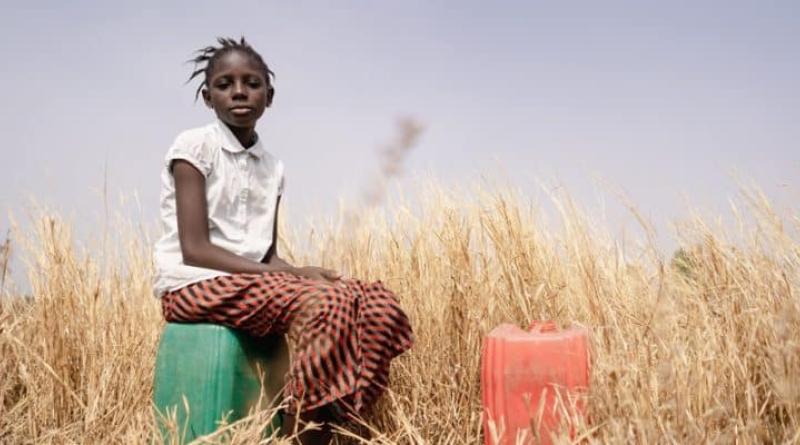At COP28, Unicef will preach the protection of children in the face of the water crisis

In a recent report, the United Nations Children's Fund (UNICEF) reveals that one in three children is exposed to the effects of climate change, such as water stress. The international organization intends to rely on this document to encourage world leaders and the international community who will be present at the 28th Conference of the Parties (COP28) of the United Nations on climate in Dubai from November 30, to act to protect the lives, health and well-being of these children, especially in the most vulnerable areas.
The report entitled “Growing up in the midst of climate change: Supplement to the Climate Risk Index for Children” from the United Nations Children's Fund (UNICEF) was published on November 13, 2023, 17 days before the launch of the 28 he United Nations Climate Conference of the Parties (COP28) is being held in Dubai, United Arab Emirates (UAE), from November 30 to December 12, 2023.
According to the document, one in three children, or 739 million people, are experiencing the effects of climate change, like water stress around the world. “The greatest number of children at risk are in the Middle East, North Africa and South Asia, regions characterized by limited water resources, high levels of seasonal and interannual variability, declining water tables. "groundwater and a risk of drought" , indicates UNICEF.
This water vulnerability can quickly impact health, with attention problems, immediate memory problems and fatigue which are the main consequences of a lack of hydration. Thinking to avoid this tragic end, they generally turn to unsafe water sources, but are quickly overtaken by water-borne diseases such as cholera, typhoid fever, diarrhea, which are often fatal in children of less than 5 years old.
From 436 million children at risk of water stress in 2022, Unicef fears that 35 million additional children will be exposed by 2050. In these circumstances, investing in adequate safe water supply services and Sanitation is an essential first line of defense to protect children. Unicef plans to remind world leaders and the international community of this at COP28.
The Loss and Damage Fund must meet the needs of children
Alongside the risks linked to water shortages, children are also vulnerable to air pollution by greenhouse gases (GHG), extreme heat, flooding, food insecurity, etc. “Their bodies and minds present an unparalleled vulnerability ,” warns Catherine Russell, Director General of Unicef.
In addition to the development of resilience projects, Unicef noted in its report four measures to guarantee children a more livable planet. First, it will be necessary to elevate children to the rank of full stakeholders in the decision on coverage of COP28 and convene a dialogue of experts on children and climate change. It will also be necessary to integrate children and intergenerational equity into the Global Assessment and take into account children and the need to establish essential services resilient to climate change in the final decision on the global adaptation goal. .
In addition, the Loss and Damage Fund and its financing arrangements must respond to the needs of children, and that children's rights are anchored in the Fund's governance and decision-making processes. “It is our collective responsibility to put children at the heart of immediate global climate action. It’s urgent ,” says Catherine Russell.




